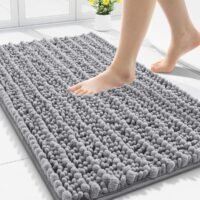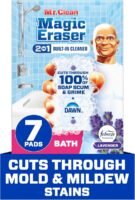Masterclass Cookware is safe to use as it is PFOA, PTFE, and BPA-free, suitable for all hobs, including induction, and dishwasher safe for easy cleaning. When choosing safe cookware, stainless steel, ceramic, glass, and cast-iron pots and pans are the go-to materials to avoid risky ingredients seeping into your food.
Cheap cookware made of straight-up aluminum should be avoided, but cookware with an aluminum core encased in a safer cooking material is generally acceptable and safe. It’s important to hand wash non-stick pots and pans for the best results, even if they claim to be dishwasher-safe.
Is Masterclass Cookware Safe
When selecting cookware for your kitchen, ensuring safety should be one of your top priorities. Masterclass cookware is a popular choice among home cooks and professional chefs alike. But is Masterclass cookware safe to use?
Materials Used In Masterclass Cookware
Masterclass cookware is made using high-quality materials that prioritize safety and durability. The primary materials used in Masterclass cookware include:
- Aluminum: Masterclass cookware often features a hardwearing cast aluminum construction, which ensures even heat distribution and excellent cooking performance.
- Induction-Safe Steel Base: Many Masterclass cookware pieces have a rigid steel induction base, making them suitable for all hobs, including induction cooktops.
- Ceramic Coating: Masterclass ceramic cookware has a premium non-stick ceramic coating. This coating is free from harmful chemicals like PFOA (perfluorooctanoic acid) and PTFE (polytetrafluoroethylene), ensuring your food remains safe and free from potentially toxic substances.
- BPA-Free: Masterclass cookware is also free of BPA (bisphenol A), a chemical commonly found in plastics that can harm human health.
Safety Features Of Masterclass Cookware
Masterclass cookware incorporates various safety features to enhance your cooking experience. These features include:
- Heat-Resistant Handles: The handles on Masterclass cookware are designed to stay cool to the touch, preventing accidental burns and ensuring safe handling during cooking.
- Sturdy Construction: Masterclass cookware is built to last, with a durable construction that can withstand high temperatures and everyday use.
Tips For Safe Use Of Masterclass Cookware
To maximize the safety of your Masterclass cookware, follow these tips:
- Always hand wash your non-stick Masterclass cookware for the best results, even if advertised as dishwasher-safe.
- Avoid using metal utensils that can scratch the ceramic coating. Opt for silicone, wooden, or nylon utensils instead.
- Use low to medium heat settings when cooking with Masterclass cookware to prevent overheating and prolong its lifespan.
- Store your Masterclass cookware properly, using pot protectors or soft cloth liners to prevent scratches and damage.
By following these simple tips, you can ensure your Masterclass cookware’s long-lasting safety and performance.
Choosing Safe Cookware
MasterClass cookware is safe as it is PFOA, PTFE, and BPA-free. It is suitable for all hobs, including induction, and is dishwasher-safe for easy cleaning. Choose MasterClass for a safe and reliable cooking experience.
Risks Of Unsafe Cookware Materials
When choosing cookware for your kitchen, it’s crucial to prioritize safety. Using unsafe cookware materials can pose serious risks to your health. Here are some common risks associated with hazardous cookware materials:
- 1. Non-stick Cookware: Non-stick cookware coated with polytetrafluoroethylene (PTFE) can release toxic fumes at high temperatures, which can be harmful when inhaled. Additionally, the use of perfluorooctanoic acid (PFOA) during the manufacturing process of non-stick cookware has been linked to adverse health effects.
- 2. Aluminum Cookware: Although aluminum is a great conductor of heat, it can react with certain foods, especially acidic ones, causing the metal to leach into your meals. Excessive aluminum intake has been associated with neurological disorders.
- 3. Copper Cookware: Copper cookware should be avoided due to the potential leaching of copper ions into your food, which can be toxic in high amounts.
Safe Alternatives For Cookware Material
To ensure the safety of your cooking experience, it’s essential to opt for cookware materials that are free from harmful substances. Here are some safe alternatives:
- 1. Stainless Steel: Stainless steel cookware is popular because it is durable, non-reactive, and corrosion-resistant. It does not release any harmful substances into your food.
- 2. Ceramic Cookware: Ceramic cookware is made from natural clay and minerals, making it a safe option for cooking. It is free from PTFE and PFOA, ensuring no toxic fumes are released during use.
- 3. Cast Iron Cookware: Cast iron cookware is known for its excellent heat retention and even heat distribution. It is a safe option, as it does not leach harmful substances into your food.
Identifying Safe Cookware
When selecting cookware, it’s essential to ensure it meets safety standards. Here are some tips for identifying safe cookware:
- 1. Look for cookware labeled as PFOA, PTFE, and BPA-free.
- 2. Check if the cookware, such as induction, is compatible with your cooking stovetop.
- 3. Read customer reviews and research the brand’s reputation for producing safe cookware.
- 4. Opt for cookware that is easy to clean, such as dishwasher-safe options.
By choosing safe cookware materials, you can ensure that the food you prepare for yourself and your loved ones is free from harmful substances. Prioritize your health and make informed decisions regarding your cookware selection.
Maintaining And Cleaning Masterclass Cookware
Maintaining and cleaning Masterclass cookware is a safe and easy process. With its PFOA, PTFE, and BPA-free composition, it is suitable for all types of hobs, including induction. The ceramic cookware is also dishwasher-safe, making cleaning convenient after use.
Proper Care And Maintenance
Maintaining and caring for your Masterclass cookware is essential to ensuring its longevity and performance. Following a few simple steps, you can keep your cookware in optimal condition for years.
- Always allow your cookware to cool down completely before cleaning or storing.
- Avoid using abrasive cleaners or scouring pads that could scratch the surface of your cookware.
- Store your cookware in a dry and well-ventilated area to prevent moisture buildup and potential damage.
- Inspect your cookware for any signs of wear, such as loose handles or damaged coatings, and address them accordingly.
Cleaning Masterclass Cookware
Cleaning your Masterclass cookware is a breeze, thanks to its durable construction and non-stick properties. Here’s a step-by-step guide to help you keep your cookware spotless:
- After each use, allow your cookware to cool down completely.
- Wash your cookware with warm, soapy water and a soft sponge or dishcloth.
- Fill the cookware with water and add a small dish soap for stubborn food residue. Bring the water to a gentle boil and let it simmer for a few minutes. This will help loosen any stuck-on food.
- After boiling, empty the water and use a non-abrasive scrub brush or sponge to remove any remaining residue.
- Rinse your cookware thoroughly with warm water to remove any soap or detergent residue.
- Dry your cookware entirely before storing it to prevent moisture buildup.
Seasoning Cast-iron Skillet
Seasoning your cast-iron skillet is crucial to maintain its non-stick properties and prevent rusting. Follow these steps to strengthen your Masterclass cast-iron skillet:
- Preheat your oven to 350°F (175°C).
- Wash your cast-iron skillet with warm, soapy water and a soft sponge or dishcloth.
- Thoroughly dry your skillet to remove any moisture.
- Using a paper towel, apply a thin layer of vegetable oil or shortening to the entire surface of the skillet, including the handle.
- Place your skillet upside down on the middle oven rack and bake it for 1 hour.
- Turn off the oven and let the skillet cool completely inside the oven.
- Once cooled, your cast-iron skillet is ready to use. Repeat this seasoning process whenever you notice the seasoning wearing off or the skillet dull.

Frequently Asked Questions On Is Masterclass Cookware Safe | Step By Step Guide
Is Masterclass Cookware Safe To Use?
Yes, MasterClass cookware is safe to use. It is PFOA, PTFE, and BPA-free and suitable for all hobs, including induction. The ceramic cookware is also dishwasher-safe for easy cleaning. Follow the manufacturer’s instructions and avoid using metal utensils on non-stick surfaces.
What Is The Safest Cookware For Health?
Stainless steel, ceramic, glass, and cast-iron cookware are the safest options for health. They do not release risky ingredients into your food. Avoid cheap aluminum cookware and opt for an aluminum core encased in a safer material. Always follow the manufacturer’s instructions for Masterclass cookware.
How Do I Know If My Pots And Pans Are Safe?
It is essential to follow the manufacturer’s instructions when using MasterClass cookware. Avoid using metal utensils on non-stick surfaces, and ensure that the cookware is undamaged, with no aluminum coming into contact with your food. Stainless steel, ceramic, glass, and cast-iron pots and pans are generally safer alternatives to avoid risky ingredients seeping into your food.
Does Masterclass Cookware Have Aluminum?
Yes, MasterClass cookware is safe to use. It is free from PFOA, PTFE, and BPA and is suitable for all stovetops, including induction. Additionally, the ceramic cookware is dishwasher-safe.
Conclusion
Masterclass Cookware is undoubtedly a safe and reliable option for your cooking needs. With its PFOA, PTFE, and BPA-free composition, you can rest assured that no harmful chemicals will seep into your food. Additionally, the cookware is suitable for all types of hobs, including induction, and is dishwasher safe for easy cleaning.
Investing in Masterclass cookware ensures our culinary creations’ safety and quality So go ahead and enjoy a worry-free cooking experience with MasterClass Cookware.

Hi, I’m Esrat, and I’m so glad that you found me here at Happy Food Kitchen! I started Happy Food Kitchen in 2023 to have a creative, right-brained outlet to balance my very left-brained career in genetics.




